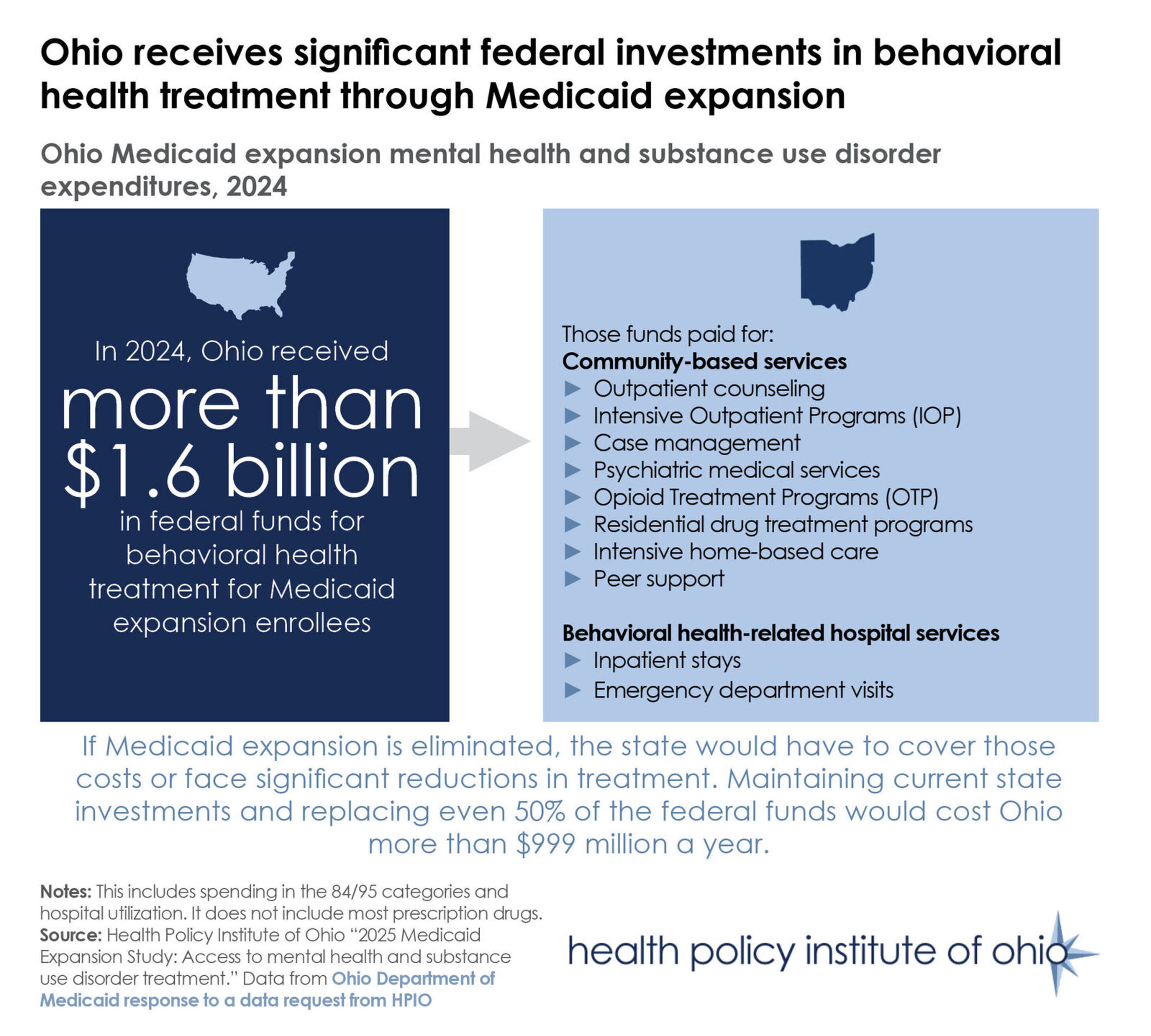- Posted
- May 02, 2025
HPIO analysis: Medicaid expansion drew $1.6 b in federal dollars for behavioral health treatment

Click to enlarge image
New analysis from the Health Policy Institute of Ohio has found that Medicaid expansion brought in more than $1.6 billion in federal funds in 2024 to pay for behavioral health services such as outpatient counseling, psychiatric medical services and residential drug treatment programs, as illustrated above.
Click here to view the new report
If Medicaid expansion is eliminated, the state would have to cover those costs or face significant reductions in treatment availability. Maintaining current state investments and replacing even 50% of the federal funds would cost Ohio more than $999 million a year.
Behavioral health conditions are common among Ohioans, including those with Medicaid coverage. In 2024, 40% of Ohioans enrolled in Medicaid expansion had a primary mental health or substance use disorder (SUD) diagnosis.
“If expansion was discontinued, many Ohioans would lose access to treatment,” according to the brief. “Policy priorities such as improving supports for recovery and re-entry and suicide prevention could be curtailed.”
The findings are included in the first in a series of policy briefs in HPIO’s 2025 Ohio Medicaid Expansion Study.
Ohio policymakers are considering discontinuation of Medicaid expansion coverage if the federal government reduces the Federal Medical Assistance Percentage (FMAP) (i.e., federal match) for this group below the current 90% federal contribution. This decision would impact approximately 770,000 Ohioans. HPIO’s recently released Policy Considerations: The Future of Group VIII (expansion) Medicaid Coverage in Ohio brief contains more general information and considerations about Medicaid expansion coverage as policymakers consider the future of the program.
